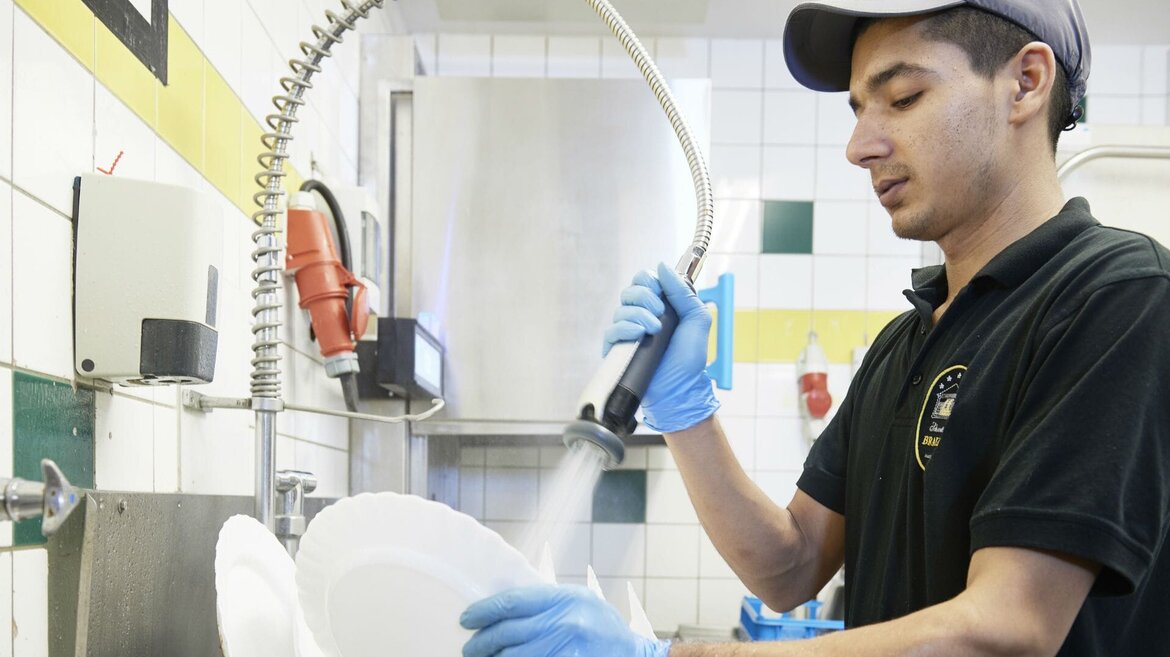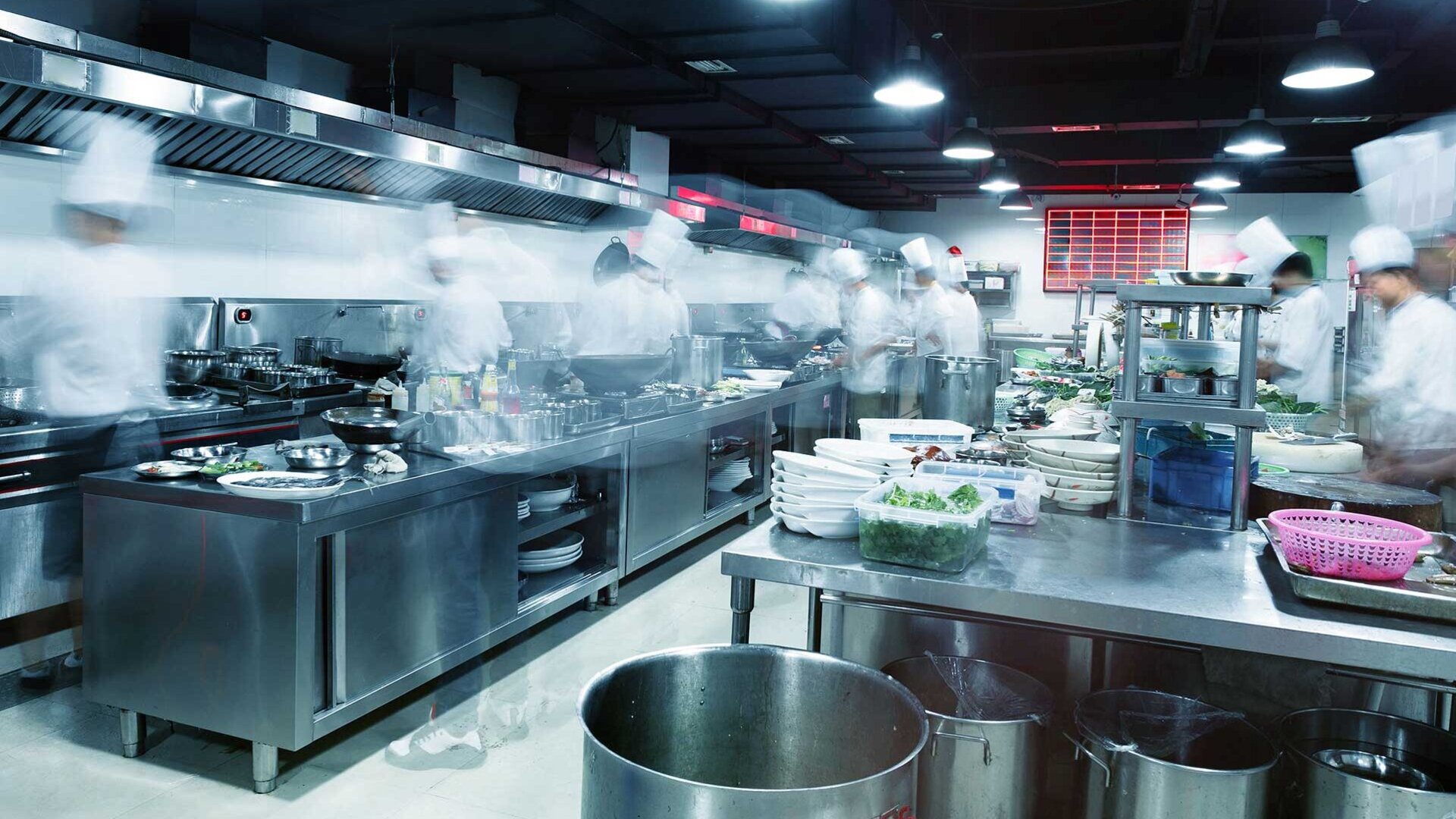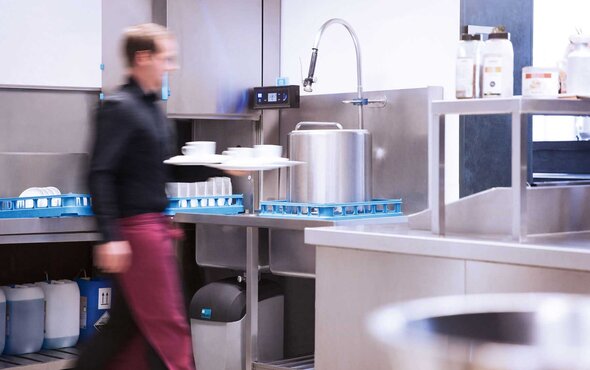FOOD SERVICE IS A HIGHLY COMPETITIVE MARKET SO EVERYTHING HAS TO WORK IN THE KITCHEN. AND IF SOMETHING IS NOT RIGHT, A PROFESSIONAL REFIT IS NEEDED. WORKFLOWS, EMPLOYEES AND MACHINES ALL NEED TO MESH TOGETHER PERFECTLY. BUT HOW? WELL, READ ON.
When everything in a restaurant is running smoothly, everyone is happy. The owner and the employees are happy because the sales are coming in. And the customers are happy because they like the food on offer and they feel comfortable. Even the tax authority is happy – but that's another story.
But what happens when a food service business is constantly running at full capacity and demand continues to rise? When more and more diners are having to wait outside?
Then it is time to act – and set up the business for growth. Aim for more throughput and an improved operating income. That is how it is done.

GROWING CAPACITY AND INCREASING EFFICIENCY IN FOOD SERVICE BUSINESSES

What should you do to grow capacity and increase efficiency? Have a closer look at your dining area. Can you rearrange the tables and chairs to increase the number of seats? Careful, though: it still has to be professional. Is there space and opportunity to open a new outdoor area? That would facilitate more sales in beer garden season.
Ask your customers if they would like to arrive earlier or stay later. Extending opening times can also bring in more money. The opposite can also be true: if barely anything is happening in the last hour before closing, then it may be worth shutting earlier. But what should you do if the problem is in the kitchen? Well, then food service businesses need to consider a professional kitchen refit.
THERE IS A LOT TO THINK ABOUT WHEN REFITTING THE KITCHEN OR THE DISHWASHING AREA
In addition to spatial planning, the conversion of a catering kitchen is primarily concerned with topics such as energy efficiency, water savings and ergonomics. New legal requirements for hygiene and environmental protection also play a role. These points are all relevant to business management.
The aim of every kitchen modernisation is to enable the staff to get the dishes to the guests faster with less effort. After all, the effort should be worth it and be one step ahead of the competition!

Any workflows which take place in the kitchen or are shared between the kitchen and dining area need to be better organised. We know you need to serve more food in the same amount of time but the quality cannot be allowed to suffer! Customers, and especially your regulars, would notice immediately.
So where should you start? Use gas and induction hobs. They use far less energy than electric hobs. Where do you go from there? Choose the right dishwashing machine. A hood type dishwashing machine will effortlessly take on large pots and pans, as well as kitchen utensils. They are a reliable help in any professional kitchen. An undercounter dishwashing machine is ideal for dishes used for snacks, and for cups and glasses. You will need to make your own decision and plan depending how much washware you produce, what your peak hours are like and your staffing situation. Staff routes are a further consideration. Everything has to be organised to be as ergonomically friendly as possible.
ERGONOMICS IS KEY

Chronic back pain and injuries from trapped fingers and arms are just a couple of the complaints facing kitchen employees in their work. Health experts therefore recommend that ergonomics plays a central role in designing new kitchens and refitting old ones.
The British ‘Health and Safety Executive,’ for example, tells employers and employees what their responsibilities are. The Executive has published guidelines with advice on how to avoid back pain and other injuries to the upper body.
Employers are required to train their staff on a regular basis, ensuring they know the correct techniques for lifting loads and are aware of risks, for example. This enables them to help minimise risks to their staff. Employees, though, are also required to take responsibility. They have to take care of their own health and that of their colleagues by using equipment correctly, wearing the proper PPE and following safe working practices. They are also to identify and report pain and difficulties early on.
ERGONOMIC DISHWASHING-TECHNOLOGY
Because occupational safety is so important in the catering industry, MEIKO offers modern and ergonomic solutions. With the M-iClean H hood type dishwashing machine, for example, a gentle tap is all that is needed to open and close the hood reliably. Without any physical exertion.
With the automatic basket recognition even tapping is no longer necessary. Simply push the basket in from the side and the dishwasher will do the rest. The employees are pleased because the work is much easier and they feel much more comfortable in their working environment.

And restaurateurs can be happy, too. Fewer mistakes are made, the kitchen staff have less back problems and are therefore less absent - after all, everything runs much more smoothly.
BOTTLENECKS IN YOUR COMMERCIAL KITCHEN? THERE'S NO TIME TO LOSE!
If you know that there is a problem but put off tackling it, it will cost you money! If you are unsure what exactly you can improve or whether it is worth refitting your dishwashing area, talk to our experts. They will help you to find the right solution for your business.



